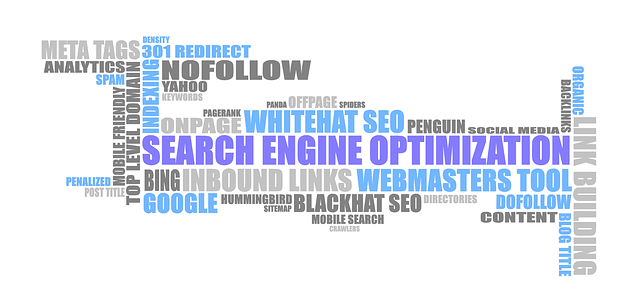The future of search is AI-driven, offering unprecedented efficiency and personalization through Natural Language Processing (NLP). As AI advances, these tools will anticipate user needs, providing tailored, contextually relevant results. However, the rise of AI-powered search raises ethical concerns around privacy, security, and bias, requiring collaborative efforts to establish responsible development practices for building trust.
The future of search intelligence is here, with AI-powered search transforming how we access information. As natural language processing (NLP) advances, search engines are becoming increasingly sophisticated in understanding user intentions and delivering personalized results. This evolution promises tailored experiences, but it also raises ethical considerations that must be addressed.
In this article, we explore these trends, delving into the rise of AI-powered search, NLP’s role, and the implications for shaping a responsible future.
- The Rise of AI-Powered Search: Transforming the Way We Access Information
- Advanced Natural Language Processing: Understanding User Intentions
- Personalized Search Experiences: Tailoring Results to Individual Needs
- Ethical Considerations and the Future of Search Intelligence
The Rise of AI-Powered Search: Transforming the Way We Access Information

The future of search intelligence is being reshaped by the rapid advancement of artificial intelligence (AI). AI-powered search technologies are transforming how we access information, offering unprecedented efficiency and precision. By leveraging machine learning algorithms, these systems can understand complex user queries, deliver highly relevant results, and continuously learn from user behavior to improve their performance over time. This shift marks a significant departure from traditional search methods, which often relied on keyword matching and simple ranking algorithms.
AI-powered search goes beyond mere information retrieval by incorporating contextual understanding, natural language processing, and personalized recommendations. These capabilities enable search engines to anticipate user needs, provide tailored suggestions, and even engage in conversational interactions. As AI continues to evolve, the potential for more sophisticated search experiences grows, promising to revolutionize how we interact with digital information in both personal and professional settings.
Advanced Natural Language Processing: Understanding User Intentions

In the realm of AI-powered search, Advanced Natural Language Processing (NLP) is transforming how we interact with information. By understanding user intentions behind queries, search engines can deliver more accurate and relevant results. NLP enables machines to interpret human language nuances, context, and sentiment, allowing for a deeper level of comprehension. This capability ensures that when users pose complex questions or express vague intents, the AI can still provide tailored responses, making search intelligence more intuitive and user-centric.
As technology advances, NLP continues to evolve, improving the overall search experience. It enables personalized search results by considering not just keywords but also individual user behaviors and preferences. With this sophisticated approach, AI-powered search tools are becoming increasingly adept at anticipating user needs, making information retrieval faster, more efficient, and more aligned with human cognitive processes.
Personalized Search Experiences: Tailoring Results to Individual Needs

In the evolution of search intelligence, personalized experiences are set to redefine how users interact with information. With advancements in AI-powered search, technology can now analyze user behavior, preferences, and context to deliver tailored results. This means that instead of a one-size-fits-all approach, search engines will offer unique insights relevant to each individual’s needs. By learning from user interactions, these systems can anticipate queries, suggest related topics, and even predict future interests, creating a more engaging and efficient searching process.
The implementation of AI transforms the conventional search experience into a dynamic, adaptive journey. Users can expect their search results to grow more relevant over time as the algorithms learn and evolve with their activities. This level of customization not only enhances user satisfaction but also encourages exploration, fostering a deeper connection between users and the vast digital landscape.
Ethical Considerations and the Future of Search Intelligence

As AI-powered search becomes increasingly integrated into our lives, ethical considerations come to the forefront. The future of search intelligence must navigate complex issues surrounding privacy, data security, and algorithmic bias. As these systems learn from vast amounts of user data, ensuring transparency and accountability is paramount. Developers and policymakers must collaborate to establish guidelines that protect individual privacy while fostering innovation.
Addressing these ethical concerns will be vital for building trust in AI-powered search tools. Striking a balance between providing relevant, personalized results and preserving user autonomy requires careful design and ongoing monitoring. By embracing responsible development practices, the future of search intelligence can offer enhanced capabilities without compromising core ethical principles.
The evolution of search intelligence is being driven by AI-powered search, which promises to revolutionize how we interact with information. Advanced natural language processing enables a deeper understanding of user intentions, while personalized search experiences cater to individual needs. As this technology continues to develop, ethical considerations become increasingly vital to ensure fairness and privacy. The future of search looks promising, offering tailored, intuitive access to vast amounts of data, but it must be guided by responsible practices to benefit all users equitably.
